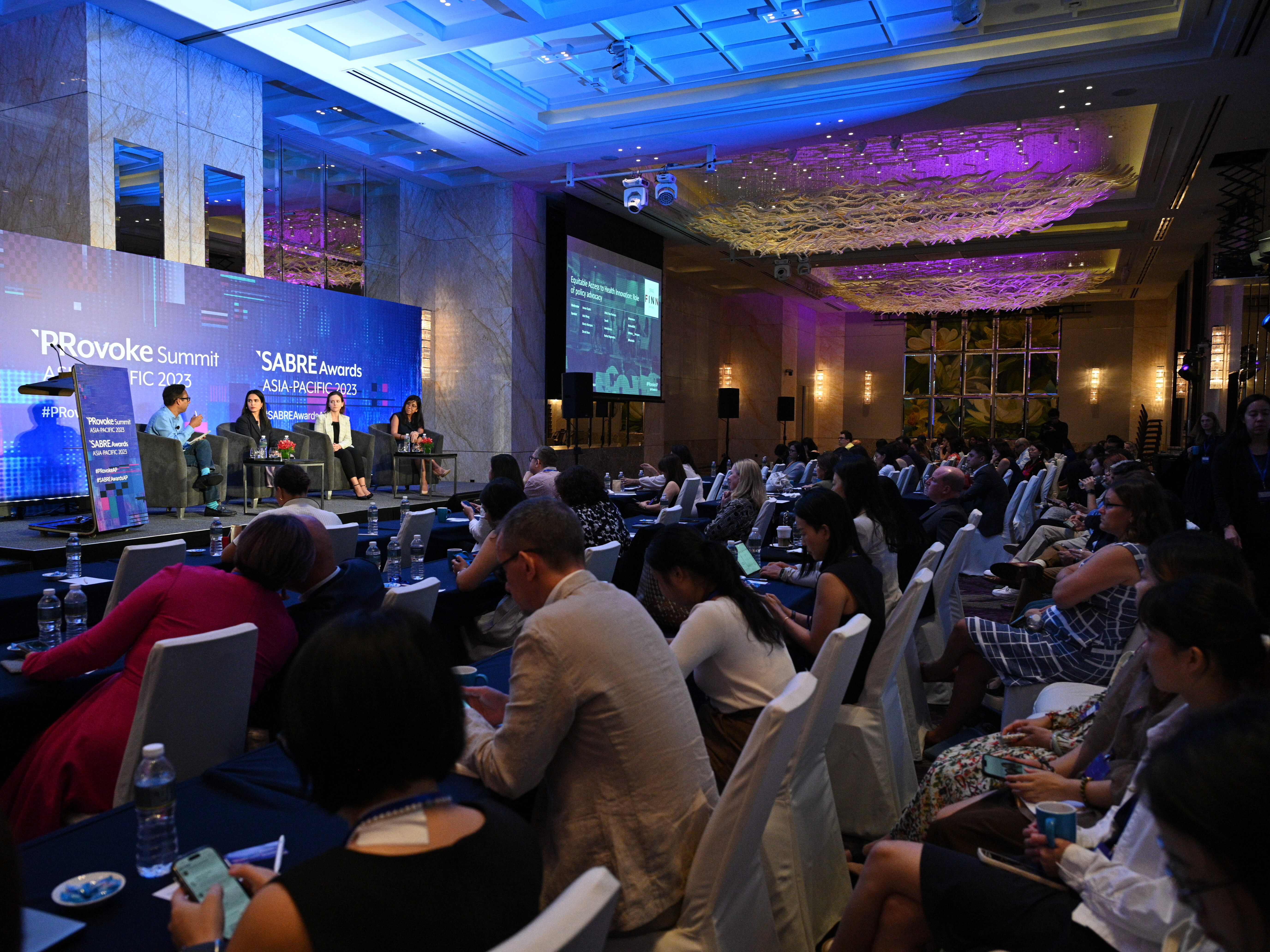Asiya Bakht 29 Sep 2023 // 6:12AM GMT

SINGAPORE — Healthcare communicators believe that one of the biggest challenges in the way of equitable access to healthcare innovation is the lack of awareness and understanding among stakeholders.
Giving the example of a significant gap in awareness between the latest iPhone and the latest blockbuster drug, Shruti Bose, head of communications and public affairs at Roche Diagnostics Asia-Pacific, said: "This goes to show that health innovation and the need for access are not understood that well. It's really nobody's fault. It's because we keep it so niche and industry-focused that the time has come, as our shared experience of the pandemic has shown us, that it should not be dependent on luck or where you live. Therefore, we have started to realize as an industry and also as individual companies that we need to get better at explaining why equities and sustainable healthcare matter because it is going to matter for each and every one of us."
Bose was speaking at a SPAG Finn Partners-sponsored panel titled 'Equitable Access to Health Innovation: Role of Policy & Advocacy,' during PRovoke Media's Asia-Pacific Summit in Singapore on Wednesday. Moderated by SPAG Finn managing partner and health practice lead Aman Gupta, the session also featured Marta Marquez, senior director of communications and international corporate affairs at AstraZeneca, and Sanofi Asia-Pacific head of public affairs Ada Wong.
Discussing the challenging economic times as countries emerge from Covid-19, Marquez emphasized the need to prioritize health, as countries continue to suffer from a silent pandemic in the form of chronic diseases like cardiovascular diseases, diabetes, and cancer. Highlighting the example of cancer, where 70% of 10 million deaths occur in emerging countries, she underscored how a disproportionate impact of the global cancer burden falls on emerging countries, despite having fewer resources, weaker infrastructure, and less investment compared to developed countries.
"Ensuring equitable access, sustainable access to health innovation is critically important and is a huge, huge challenge. We need to rethink how we can mobilize the entire healthcare sector and all those involved in the delivery of healthcare. Governments, not just ministries of health but other departments as well as NGOs and other private companies, need to galvanize and use their assets to support equitable access to healthcare," Marquez said.
The panellists also discussed the need for helping governments and countries overcome policy inertia by highlighting the value of such initiatives. Bose thinks healthcare companies have to stop talking about solutions and start talking about what they can offer to stakeholders.
"There'll be some sort of saving and benefit, but it is that you can write your name in history books for eternity as a country that mobilized change. And that really is, I feel like I owe it to my daughter and to the next generation," Bose said.
Ada Wong of Sanofi believes that policy change can be affected by leveraging media the right way. "I will say communication in pharma is the most difficult one with so much regulation. You cannot do this, you cannot talk about disease awareness even if yours is the only drug on the market. That's why I think the mantra is how to work with your different stakeholders. You don't need to be the one to talk to the media. You ask your patient, you ask the parents of the kids who suffer from disease. They're the ones hospitalised for one week, they're the ones who can champion your story in the media, talk to journalists, make the policymaker feel the pain; they're parents themselves as well. If you really can make it a headline, you can engage and mobilise different stakeholders across the whole ecosystem."
The panellists touched upon the role of influencers in healthcare communications. When asked about the role played by different kinds of influencers like celebrities or healthcare experts and the value that each of them brings, the panellists were aligned that the industry has not used influencers effectively. Bose believes that the trick lies in dumbing down and offering bite-sized information to influencers while Wong believes that influencers have the power to become strong advocates if educated properly. Marquez, however, is of the opinion that the industry needs a celebrity influencer of its own.
"How do we find the Greta Thunberg for communicable diseases, to find urgency to the issues that a lot of people think are not relevant today?" she said.


































.jpg)

















